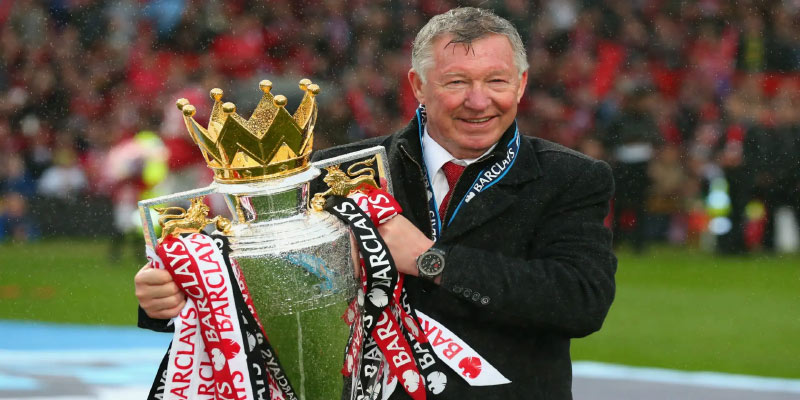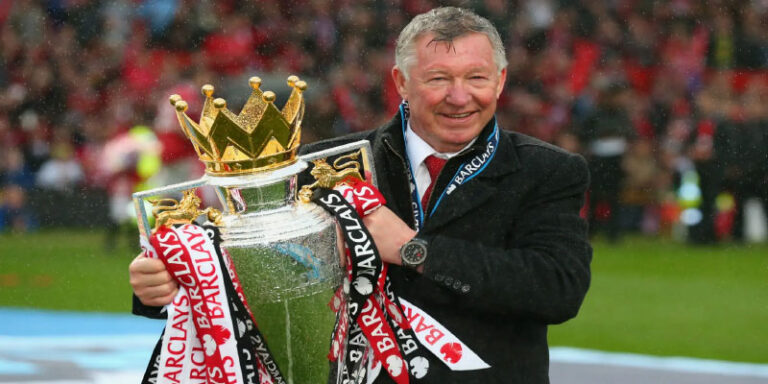
Sir Alex Ferguson: What Made Him a True Football Genius?
Few names evoke as much awe in football as Sir Alex Ferguson. Beyond the trophies and triumphs, he was a master of evolution—constantly reinventing teams, tactics, and mentalities across nearly three decades at Manchester United. From fiery team talks to razor-sharp strategies, Ferguson’s leadership redefined what it meant to manage at the highest level. His relentless pursuit of greatness didn’t just build a dynasty—it transformed the global footballing landscape. This deep dive uncovers the mind behind the legend, examining how Ferguson’s legacy continues to echo through every corner of the sport he helped reshape.
Tactical Innovations by Sir Alex Ferguson
Sir Alex Ferguson was a pioneer in tactical innovations that revolutionized football management.
The 4-4-2 Formation
One of Ferguson’s most recognized formations was the 4-4-2.
While many clubs primarily operated under a 4-4-2 system, Ferguson’s adaptation and variations to this formation were what set him apart. He utilized this tactical setup creatively, deploying a midfield duo that balanced attacking prowess with defensive stability.
This flexibility allowed players such as Roy Keane and Nicky Butt to thrive, and the formation became a staple in title-winning campaigns.
The Dynamic Midfield
Ferguson was a proponent of fluid midfield dynamics.
He often tweaked his midfield structure based on opponent strengths, creating variations that disrupted opponents’ gameplay.
In crucial matches, he would deploy a box-to-box midfielder paired with a more defensive anchor, exemplified in his partnership of Keane and Scholes. This dynamic ensured Manchester United controlled the pace of the game while maintaining a solid defensive structure.
The Inverted Winger Strategy
Another innovation credited to Ferguson is his use of inverted wingers.
By placing left-footed players on the right flank and vice versa, Ferguson introduced unpredictability and versatility in attack. Players like Arjen Robben and Cristiano Ronaldo benefitted from this strategy, as it allowed them to cut inside and take on defenders or shoot from angle, creating more scoring opportunities.
This tactical approach has been widely adopted by several contemporary managers, highlighting the foresight of Ferguson’s methods.
Sir Alex Ferguson and Manchester United’s Dominance
The relationship between Sir Alex Ferguson and Manchester United goes beyond that of a manager and his club; it is a partnership that enabled unparalleled success and dominance in football.
Building a Winning Culture
Ferguson’s ability to build a winning culture is at the heart of Manchester United’s dominance.
He bred a mentality within his players that prioritized success while cultivating a sense of humility. This blend ensured that the club maintained high performance levels, as players were constantly driven to improve and push their boundaries. Ferguson’s ability to keep his squad hungry for success despite overwhelming achievements is a testament to his prowess as a leader.
Adaptation to Changes in Football
Another reason for Ferguson’s success was his ability to adapt to the changing landscape of football.
Over the years, he witnessed a transformation in the physicality and pace of the game, alongside advancements in sports science and analytics. Ferguson embraced these changes, constantly tweaking training regimens and adopting new technologies that contributed to the overall fitness and preparedness of his teams.
His forward-thinking mentality ensured that Manchester United maintained its competitive edge over rivals even as the game evolved.
Fostering Rivalries
The fierce rivalries Ferguson fostered, especially with clubs like Arsenal and Liverpool, contributed to Manchester United’s dominance.
These matchups not only attracted heightened media attention and fan involvement but also instilled a deep sense of purpose in the Manchester United players. Ferguson used these games as opportunities to challenge his squad and emphasize the importance of the “big match” mentality, creating an aura of invincibility in crucial encounters.
Lessons from Sir Alex Ferguson’s Management Style
Sir Alex Ferguson‘s approach to management offers invaluable lessons for aspiring coaches and managers across various industries.
The Importance of Communication
One of the foundational aspects of Ferguson’s management style was effective communication.
Ferguson possessed a remarkable ability to convey expectations, and the importance of articulation in maintaining transparency within his squad was never understated. He ensured that each player understood their role, thus fostering a culture of accountability among the team.
Through honest feedback, he nurtured a constructive environment where players felt empowered to express themselves and suggest improvements, further strengthening team cohesion.
Emotional Intelligence
Ferguson exhibited high emotional intelligence; he understood the motivations and emotions of his players.
Knowing how to balance discipline with empathy allowed him to build rapport with individuals. This emotional connection inspired trust and loyalty within the squad and played a critical role in players performing at their best under pressure.
In an era where “managerial toughness” is often overemphasized, Ferguson’s ability to balance authority and empathy remains a valuable lesson for leaders across fields.
Embracing Change
Ferguson was not afraid to embrace change and the lessons that come from adversity.
Despite successful tenures, Ferguson frequently sought new ideas, approaches, or perspectives that could propel the club to greater heights. This willingness to evolve led to continuous improvement, which is essential in management to counter stagnation.
Football is a constantly evolving sport, and Ferguson’s adaptability allowed him to stay ahead of the competition, a crucial lesson for any leader.



